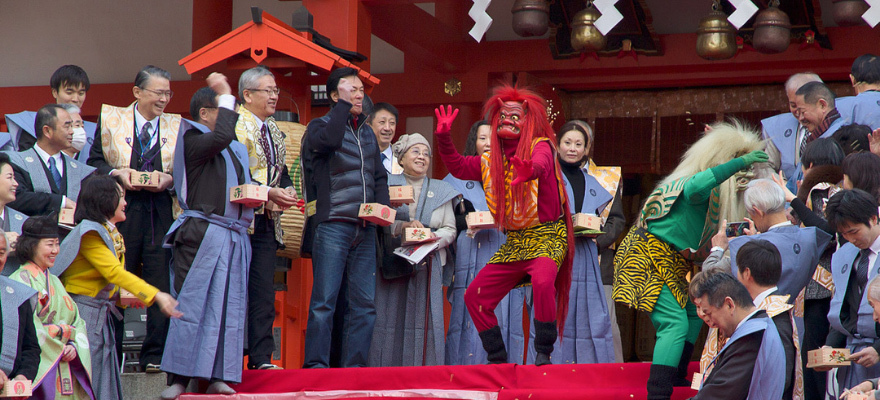Now Reading: Japan’s Festival Where Beans Are Thrown to Drive Away Demons
-
01
Japan’s Festival Where Beans Are Thrown to Drive Away Demons
Japan’s Festival Where Beans Are Thrown to Drive Away Demons

Every year in early February, Japan celebrates a unique tradition where people throw roasted soybeans to chase away evil spirits. Known as Setsubun, the festival marks the arrival of spring according to the lunar calendar. Families, temples, and schools take part in the ritual, which blends culture, community bonding, and belief in keeping misfortune at bay. It’s a centuries-old practice that still finds relevance in modern times.
The Ritual of Bean-Throwing
At the heart of the festival is the act of tossing roasted beans while chanting “Oni wa soto, fuku wa uchi,” which means “Demons out, good fortune in.” People believe that scattering beans purifies homes and ensures happiness for the year ahead. In some regions, participants wear demon masks while others playfully throw beans at them, turning the ritual into a lively celebration.
Community and Family Bonding
While the origins are spiritual, Setsubun today has become a family-centered event. Parents often play the role of demons, and children gleefully throw beans to drive them away. Many households also eat the same number of beans as their age, as a symbol of wishing for health and longevity. Public ceremonies at temples and shrines attract crowds, where celebrities or local leaders may lead the ritual.
Symbolism and Seasonal Change
The festival is tied to the idea of cleansing before the arrival of a new season. Just as farmers once marked seasonal shifts with rituals, Setsubun reflects the hope of moving from cold winter into a fruitful spring. For many Japanese families, it’s less about superstition and more about preserving cultural heritage while enjoying a joyful annual tradition.
Lessons Beyond Borders
Though deeply rooted in Japanese culture, Setsubun reflects a universal idea: the desire to leave behind negativity and welcome positivity. For people in India or elsewhere, the bean-throwing ritual may seem unusual, but its essence is not unfamiliar. Festivals like Holika Dahan or Lohri also symbolize burning away the old and inviting new beginnings.
Keeping Tradition Alive
As urban life grows faster and traditions risk being forgotten, Setsubun continues to thrive because it’s simple, fun, and meaningful. By throwing beans at demons, people reaffirm their collective wish for good fortune, proving that even small rituals can hold powerful cultural value

























